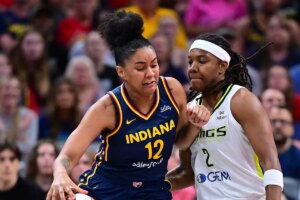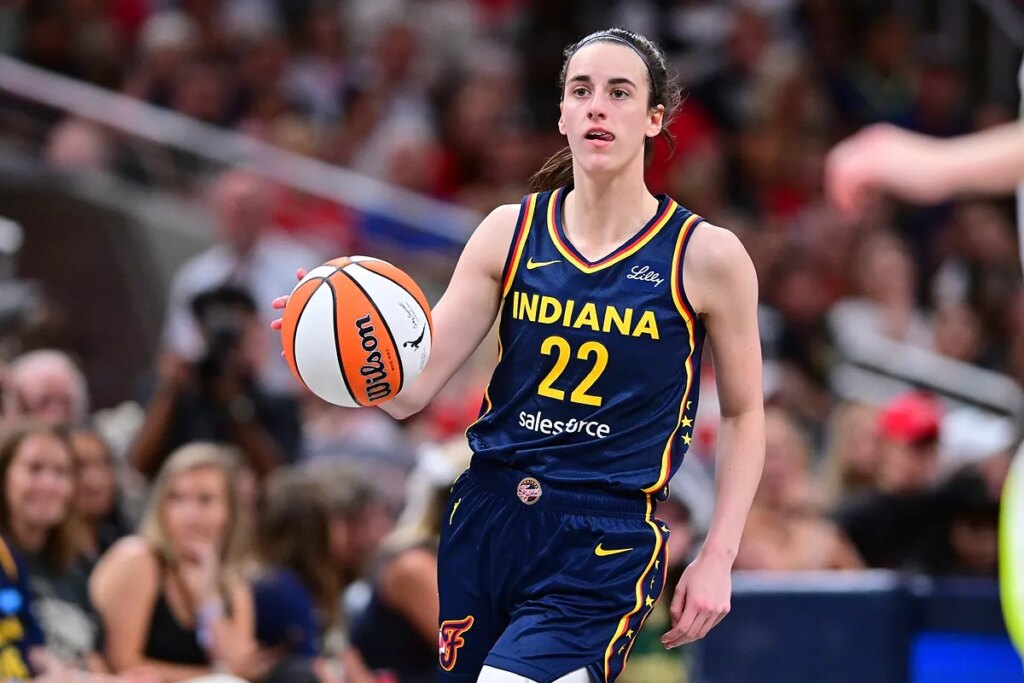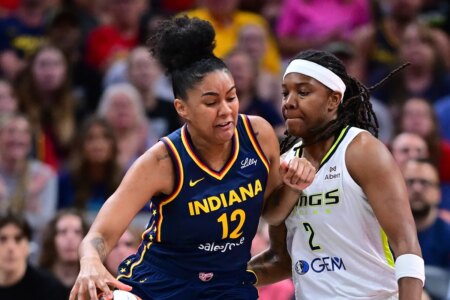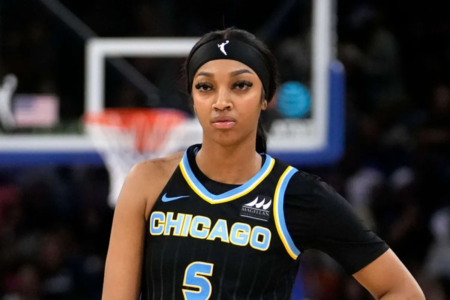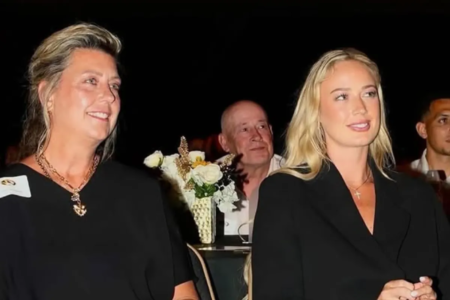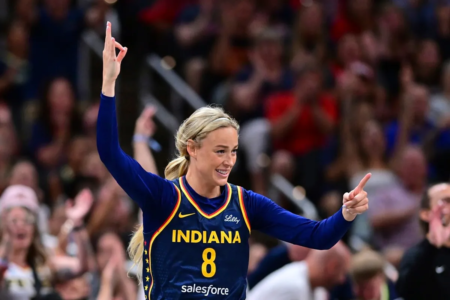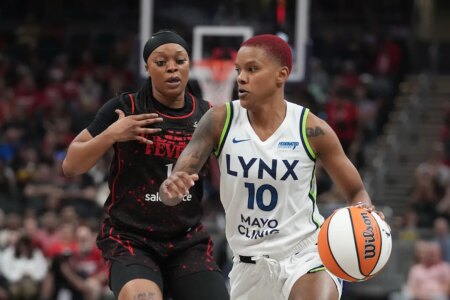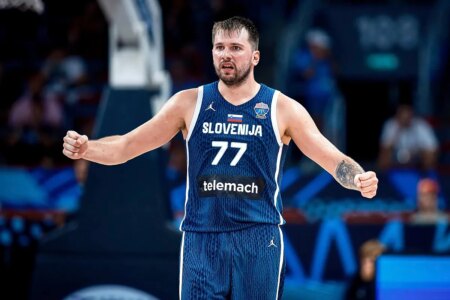The Indiana Fever cruised past the Dallas Wings in a dominant performance, fueled once again by rookie phenom Caitlin Clark.
But while the scoreboard was clear, the conversation around the game took a more heated turn-centered not on Clark’s stat line, but on officiating and ESPN analyst Rebecca Lobo’s commentary.
Clark delivers despite limited minutes
Clark logged just 25 minutes due to a quad injury restriction but still posted a double-double: 14 points, 13 assists, a career-high five steals, and three rebounds. Remarkably, she picked up only two personal fouls-2.5 below her season average-sparking further discussion around how referees handle physical play against her.
During one early drive against rookie JJ Quinerly, Clark absorbed repeated contact before finally drawing a whistle. ESPN’s Rebecca Lobo broke down the sequence on-air:
“There’s a grab, a hold, another grab-every single one is a foul,” she said. “And finally, they call it.”
Play-by-play partner Ryan Ruocco agreed, pointing out the recurring pattern of uncalled contact.
While some praised Lobo for speaking up, others accused her of blatant favoritism.
“Rebecca Lobo is the worst commentator. She may as well look for a PR job with the Fever,” one fan posted online.
Critics argued that Lobo overly focuses on Clark during broadcasts. Similar sentiments were aimed at Ruocco and sideline reporter Holly Rowe, with some fans even calling for ESPN to replace the entire crew.
Still, others pushed back against the criticism, pointing out that Lobo has both praised and critiqued Clark, including calling her the best passer in the league and highlighting her impact on WNBA visibility.
While Clark often draws attention for the physical defense she faces, she’s not alone. Clark drew 4.5 fouls per game last year-fourth-most in the WNBA. Jewell Loyd led the league with 5.7. Clark also accounted for 17% of all flagrant fouls drawn last season.
Physical play is a league-wide concern, highlighted by recent incidents-such as the Fever’s chaotic game against Connecticut, where three players were ejected and Clark was knocked to the floor twice without opponents being tossed.
Angel Reese’s recent criticism of officiating also adds to a growing chorus of voices calling for reform. Lobo’s comments were timely, even if polarizing.
As the face of a rapidly growing league, Clark commands attention. Her logo threes, flashy assists, and competitive fire attract millions of viewers-naturally making her the focus of commentary.
“Listening to Rebecca Lobo call a Fever game is headache-inducing,” one viewer complained. But Clark’s presence on the court makes her the headline act, and broadcasters reflect that.
Still, the WNBA must strike a careful balance-celebrating a generational star like Clark without diminishing the league’s depth of talent.
The criticism of ESPN’s coverage isn’t just about one player-it reflects the growing pains of a league in transition. As the WNBA enters a new era, players like Caitlin Clark, Angel Reese, and Paige Bueckers are drawing in fresh fans. With that comes scrutiny: of referees, of commentators, and of how the game is presented.
Rebecca Lobo’s commentary sits at the center of that storm. Whether you view it as honest analysis or biased promotion, it’s clear that the WNBA’s spotlight is growing-and so is the pressure on everyone under it.
Read the full article here


